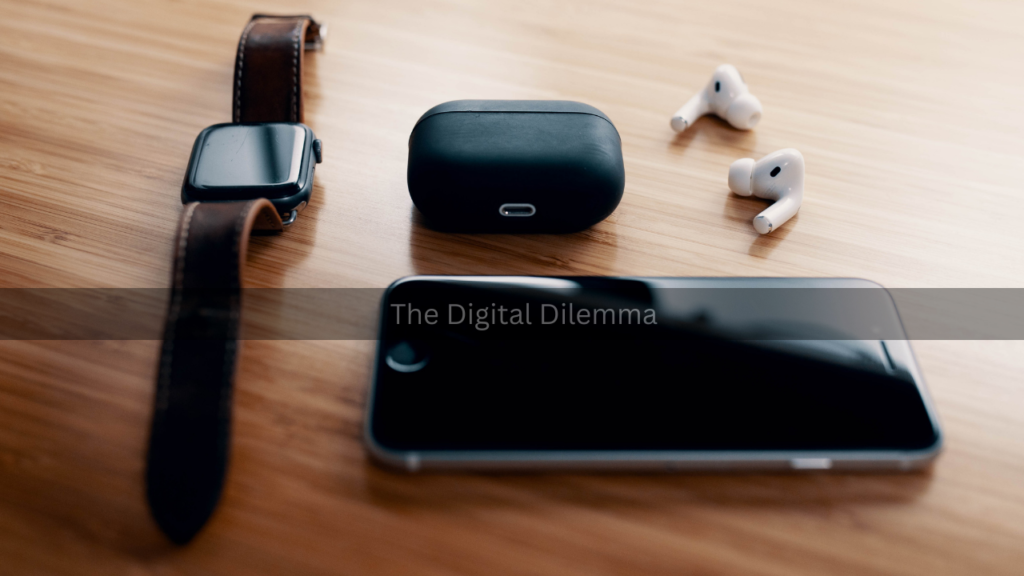How Advancing Technology Amplifies Dependence on Communication Devices
Standard post by Temp35 on August 22, 2024
Comments are off for this post

In the age of rapid technological advancement, our daily lives are increasingly intertwined with communication devices. Smartphones, tablets, and computers have become indispensable tools, shaping how we interact, work, and even think. However, this growing dependence on technology presents a complex dilemma, raising questions about its impact on our well-being and social dynamics.
The Rise of Digital Connectivity
Over the past two decades, the proliferation of digital communication devices has transformed how we connect with others. The advent of smartphones has revolutionized the way we communicate, allowing instant access to emails, social media, and messaging platforms. This shift from traditional communication methods to digital channels has been both empowering and overwhelming. The convenience of staying connected 24/7 has led to an unprecedented level of dependency on these devices.
The Benefits and Drawbacks
On one hand, the integration of communication devices into our lives has offered numerous benefits. It has facilitated seamless interaction across distances, enabling remote work, virtual meetings, and real-time collaboration. Social media platforms have allowed us to maintain relationships and build networks with ease, creating a global village where information and ideas flow freely.
However, this constant connectivity also brings significant drawbacks. The line between work and personal life has blurred, leading to increased stress and burnout. The expectation of immediate responses can create pressure and reduce our ability to focus on tasks without interruption. Additionally, the overuse of digital devices has been linked to issues such as sleep disturbances, eye strain, and a decrease in face-to-face social interactions.
The Psychological Impact
The psychological implications of this dependence are profound. Research has shown that excessive use of communication devices can contribute to anxiety and depression. The constant bombardment of notifications and the pressure to stay updated can lead to a state of perpetual distraction. This constant state of alertness can disrupt our ability to concentrate, affecting productivity and overall mental health.
Moreover, the curated nature of social media platforms often leads to comparison and self-esteem issues. Seeing carefully crafted portrayals of others’ lives can result in feelings of inadequacy and dissatisfaction with one’s own life. The addictive nature of these platforms, designed to keep users engaged, can exacerbate these feelings and further entrench our reliance on digital communication.
The Social Consequences
Socially, the dependence on communication devices has altered how we interact with one another. Face-to-face conversations are increasingly interrupted by the presence of screens, leading to a reduction in the quality of personal interactions. The ability to connect instantly can sometimes overshadow the value of meaningful, in-person engagements.
Additionally, the rise of online communities has created a paradox where individuals can feel both more connected and more isolated. While digital platforms allow for interaction with a broader range of people, they can also foster a sense of loneliness and disconnection from those physically present. The depth and authenticity of relationships may suffer as a result.
Navigating the Digital Dilemma
Addressing the digital dilemma requires a balanced approach. Being mindful of our device usage and setting boundaries can help mitigate the negative impacts. Engaging in activities that promote face-to-face interactions and practicing digital detox can restore a sense of equilibrium. As technology continues to advance, it is crucial to remain aware of its effects on our lives and strive for a healthy balance between digital connectivity and real-world engagement.
In conclusion, while advancing technology has undeniably enhanced our ability to communicate, it has also amplified our dependence on communication devices. Recognizing and addressing the associated challenges is essential for maintaining both our mental well-being and the quality of our social interactions in this increasingly digital age.